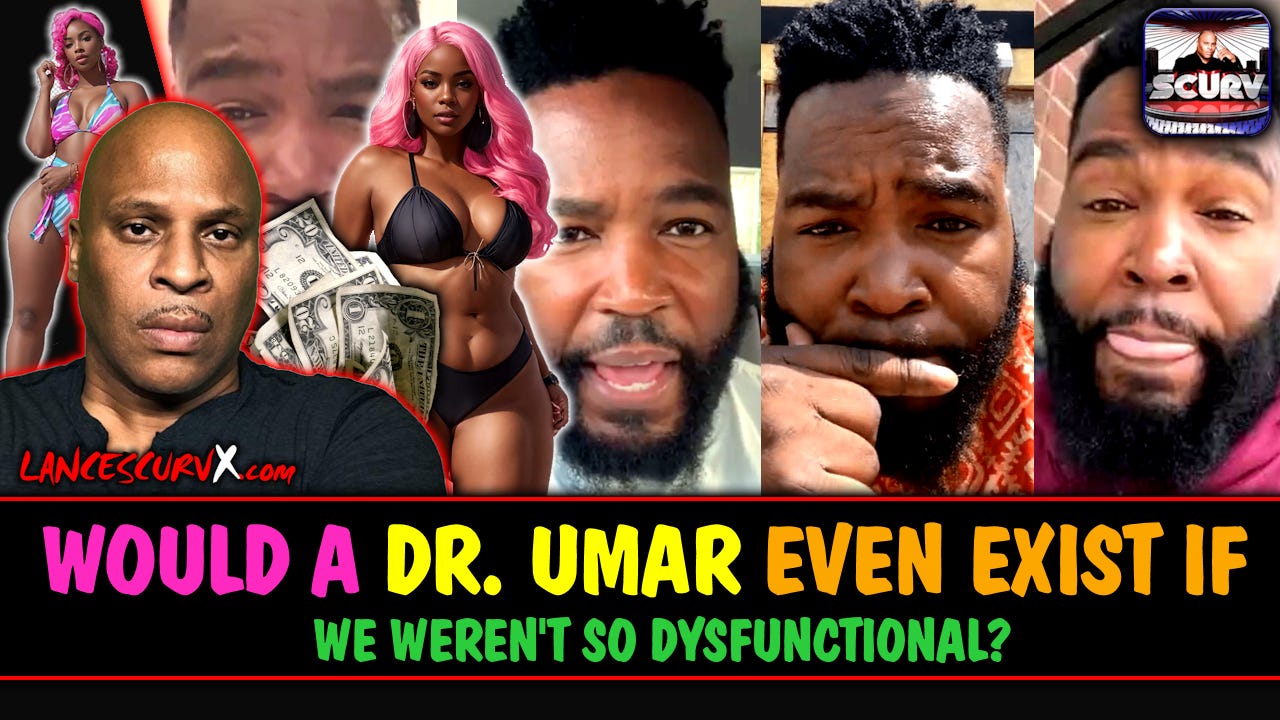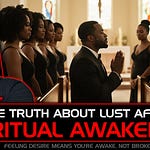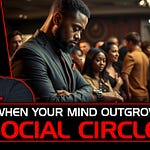For over 15 years, the name of Dr. Umar Johnson has been tied to promises of a school for Black boys that never came to life. He collected money, spoke about his plans, and traveled the world, yet the so-called dream of the FDMG School remains an empty shell. This situation has sparked anger and confusion, but it also forces us to look deeper.
The real issue is not about him alone. It is about us as a people. Why do we continue to fall for the same patterns of smooth-talking leaders, charismatic preachers, and so-called visionaries who take our resources but give us nothing in return? Why do we not learn quickly enough to see through fraud?
When you step back and analyze, the question becomes painful but necessary: would such figures even exist in our community if we were not so dysfunctional? Other groups shut down obvious scams before they get too far, but for some reason, we allow frauds to thrive in our neighborhoods and communities for years.
It is not just about one man or one failed project. This is a generational sickness. From hustlers in the streets to false prophets in pulpits, our people too often embrace exploitation as normal. We even celebrate it in music, film, and culture. That acceptance feeds the cycle.
So today, I’m putting the spotlight not only on the frauds who live off us, but more importantly, on our collective behavior that allows them to rise in the first place. The following points will break down why we keep falling for these traps historically, culturally, and generationally.
The Cycle of Dysfunction
The first reason lies in our history of slavery. Our ancestors were conditioned to depend on someone outside of themselves for leadership, direction, and survival. That dependency spirit passed down through the generations, leaving us vulnerable to anyone who speaks with authority, even if they are not qualified.
Second, we suffer from a deep hunger for saviors. Because of the pain of oppression, we often look for larger-than-life figures to lift us out of despair. The problem is that too many of these so-called leaders come with silver tongues but no true commitment. Our need makes us blind.
Third, the church culture in our community has taught us for centuries to follow blindly. Preachers who manipulate emotions for offerings paved the way for modern grifters. If you can stir up tears and shouts, you can secure trust without accountability.
Fourth, we celebrate hustler culture. The blaxploitation films of the 70s glorified pimps, hustlers, and con men. Today’s music does the same, praising fast talkers and money grabbers. We grew accustomed to seeing exploitation not as a crime, but as a skill worthy of respect.
Fifth, we lack strong institutions. Other communities have businesses, schools, and networks that protect them from fraud. We rely too heavily on individuals instead of systems. That leaves us open to personalities who promise the world but deliver nothing.
Sixth, generational trauma makes us crave validation. When someone claims to build something “for us,” we give them too much trust too fast. Our insecurity makes us feel special when chosen by a charismatic leader. In reality, we are just another target.
Seventh, economic desperation plays a role. When people are broke and broken, they cling to hope. The promise of a new school, a new movement, or a new program sounds like salvation. We throw money at it even if the track record is weak.
Eighth, fear of criticism holds us back. Many in our community know the fraud when they see it, but they stay silent to avoid being labeled as “negative” or “unsupportive.” This silence allows the fraud to keep growing.
Ninth, we confuse charisma with competence. A good speech can hypnotize us into thinking a person has good character. We equate passion with credibility. In truth, the two are not the same. This mistake has been repeated for decades.
Tenth, we have normalized dysfunction so deeply that scams don’t shock us anymore. Instead of demanding accountability, we shrug and say, “That’s just how it is.” When con men know we expect nothing better, they thrive.
The Bigger Lesson
The rise of figures like Dr. Umar is not just about one person taking advantage of others. It is a reflection of our wounds. We cannot keep pointing fingers at the frauds without admitting that our dysfunction feeds them. They are symptoms of our deeper illness.
Until we build stronger community structures, demand accountability, and stop chasing personalities, this cycle will repeat. It is not just about money lost—it is about trust, energy, and the future of our children.
We have to wake up. Our tolerance of dysfunction is destroying us from the inside. Every time we allow a fraud to flourish, we weaken the possibility of true progress.
The lesson is clear: no one man will save us. Only collective responsibility, discipline, and unity can.
The question still stands: would a Dr. Umar even exist if we were not so dysfunctional? The honest answer is no. He exists because the conditions in our community allow him to exist. He thrives because we enable him to thrive.
We must face ourselves. Fraudulent leaders are not the real problem—they are the result of the problem. The dysfunction in our culture, our history, and our mindset is what gives them life. Until we cut off the root, more grifters will rise.
The call now is for accountability. Every dollar we give, every movement we join, every leader we follow must be tested, questioned, and held to a standard. Blind trust must end.
As Black people, we deserve better. But we must stop waiting for better to fall into our laps. We must create it by refusing to support fraud, no matter how popular or entertaining the figure may be.
This is not about one man. It is about us. The time has come to heal the dysfunction and stop feeding the very forces that drain us. Only then will our community rise strong, united, and unshakable.












